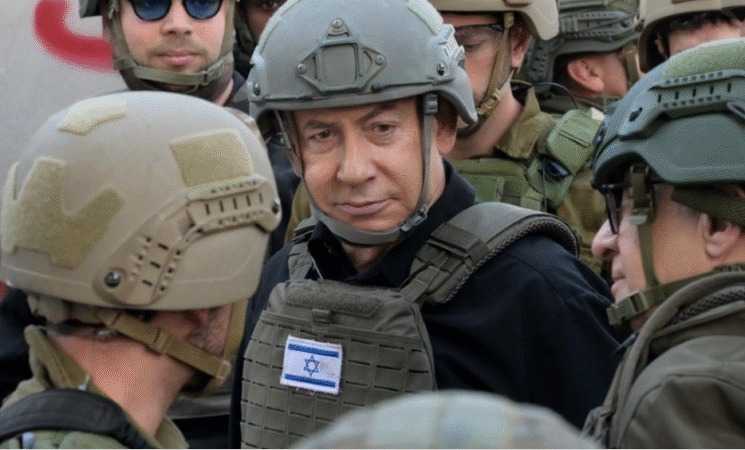3 June 2025, NIICE Commentary 11108
Dr. Punsara Amarasinghe
The international opprobrium that Israel faced before its intensified military offensive in Gaza seems to have snatched the strategic victories Israel earned since they launched the strikes in Gaza. The sympathies of the West which often endorsed Israel’s right to self-defense reached its nadir today before the unmitigated humanitarian crisis occurring in Gaza. In a context where Israel grapples with the danger of becoming a global pariah, it may be imperative to examine how Netanyahu’s Gaza strategy went haywire from good to bad and ugly. Israel’s goal after the October 7th attacks focused on two main objectives: securing the release of hostages held by Hamas and eliminating Hamas altogether, as pledged by Netanyahu in the wake of the attacks. Despite the initial shock caused by Hamas's unconventional tactics against Israel, the IDF launched a significant military offensive in Gaza, followed by further escalations in Lebanon, Syria, and Yemen.
Against all odds, the military victories of IDF by debilitating the whole military apparatus of Hamas in an irreversible manner marked a crucial moment in the conflict as Israel could successfully eliminate all key characters in Hamas . The IDF isolated and then degraded Hamas units until they could not operate without being fully rebuilt, the doctrinal definition for destroying a military force. Hamas could not impede any Israeli operation by late 2024, which demonstrated Hamas’ weakness. The IDF established two operationally significant corridors during its clearance operations that isolated Hamas forces in the north from their counterparts in the south and isolated Hamas from external resupply.
Indeed, Israel can gleefully boast of its victory won against the country’s foes; it has jeopardized Iranian proxy warfare in the Middle East while defending itself from Teheran’s retaliation and neutralized Hezbollah’s menace from Lebanon while undermining Syria’s military capabilities.
The current crisis that encompasses Israel stems from Tel Aviv’s own shortcomings, particularly in its apathy in defining what awaits in Gaza after defeating Hamas. The famous axiom associated with all the wars perennially from Clausewitz to Kissinger is war is nothing more than a continuity of politics by other means. Former Prime Minister of Israel, Ehud Barak contends that Netanyahu deliberately avoided revealing his strategy on post-war Gaza as it would have led to a politically inconvenient truth: defeating Hamas means replacing it with a government accepted by regional partners, the international community and Palestinians themselves, which prevents Netanyahu’s right coalition from perpetuating ultra-chauvinistic rhetoric domestically. The IDF and the Israeli government needed to define a clear political end state to turn the military victory into a victory that secured all three war aims. The Israeli government refused to identify such an end state, making it difficult for IDF commanders to execute military operations that would have set better conditions to destroy Hamas’ ability to control the strip and rebuild its government.
After launching the massive-scale invasion in early May known as Operation Gideon’s Chariots, Netanyahu affirmed his support for President Trump’s plan to relocate the civilians in Gaza describing it as a brilliant plan that would inevitably alter the geopolitical architecture in the Middle East. However, his choice of perilous path in fastening the massive strikes in Gaza creating a macabre situation diminishes all the strategic victories attained by IDF as the international voice against Israel is becoming critical.
At this moment, the total elimination of Hamas stands as a whimsical idea away from reality with its practical impossibility. Thus, succumbing to a deal that would augment the process of releasing hostages and ending hostilities will safeguard what Israel tactfully achieved from this war. Perhaps, Netanyahu can learn from the old Chinese adage attributed to Sun Tzu who favoured the idea of giving an escape route to the enemy, which is called “ Golden Bridge” in Art of War. In a situation when the enemy is completely surrounded, the enemy's fiery resistance to the last ditch is likely to be a foregone conclusion. Providing an escape route for the enemy to retreat averts the chances of making him detrimental to the offensive party.
What happens currently in Gaza robustly transforms against Israel on two fronts. First, the humanitarian crisis in Gaza has become Israel’s original sin questioning the country’s moral and internal legal obligations, which can push the international community to isolate Israel as how the Apartheid regime in South Africa confronted the same reality in the past. Secondly, hate crimes against Jews around the world have increased at unprecedented levels, albeit the formidable military offensive of IDF in Gaza. On the whole, the military efforts that evaporate the Israeli economy while crippling the country’s image are not the ultimate panacea.
A deal would certainly benefit the State of Israel, if it can successfully bring the remaining hostages back, setting the path to reconstruct the situation in Gaza. All in all, what Sun Tzu wrote more than 3000 years ago is credible even to today’s geopolitical complexities, especially in the twisted situation that Netanyahu and his right-wing coalition face.
Dr. Punsara Amarasinghe is a post-doctoral fellow at the Institute of Law, Politics and Development, Scuola Superiore Sant Anna, Pisa.

